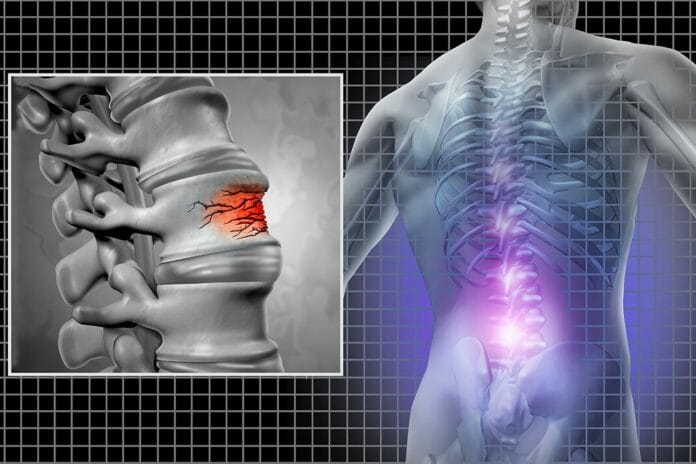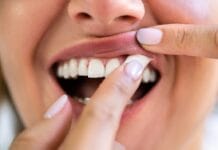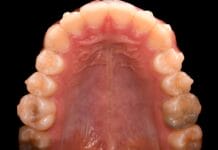An association between poor oral health and a number of systemic diseases has been well established. However, questions remain regarding some systemic conditions, such as osteoporotic fractures. Systemic inflammation due to poor oral health is associated with rheumatoid arthritis, and rheumatoid arthritis is linked to osteoporotic fractures.1
A study explored a potential association between poor oral health and the risk of osteoporotic fractures.1
The Study
The study utilized Korea’s National Health Insurance Service-National Health Screening (NHIS-HEALS) database. The NHIS-HEALS is a government-administered support system and the primary insurance provider in Korea, covering 97% of the population.1
Participants who underwent an oral examination between 2003 and 2006 were selected. Participants were excluded if there were missing variables or if they had a history of osteoporotic fractures. The final cohort sample size was 194,192.1
The method for identifying participants with periodontal disease included the following criteria:1
- Two or more claims reported for acute periodontitis, chronic periodontitis, or periodontitis, and at least one claim of periodontitis treatment.
- Documentation of periodontal pocket depth exceeding normal limits.
Self-reported information regarding oral hygiene practices was also collected. This study was longitudinal, with the median follow-up time being about ten years.1
Results
The study results indicate a positive correlation between periodontitis and osteoporotic fractures. Additionally, an increased number of missing teeth and an increased number of caries were also positively correlated with increased osteoporotic fractures.1
However, there was an inverse correlation between the frequency of tooth brushing and osteoporotic fractures. Those who reported brushing twice or more a day had a reduced risk of osteoporotic occurrence compared to those who reported brushing once a day or less. Additionally, those who reported completing non-surgical periodontal therapy within the past year had a statistically significant decreased risk of osteoporotic fracture occurrence.1
Interestingly, a correlation between oral health and health behaviors and the occurrence of hip and vertebral fractures was similar to that of osteoporotic fractures.1
The study’s results indicate an increased risk of osteoporotic fracture and periodontitis. An increased number of missing teeth was also correlated with increased osteoporotic fractures. Meanwhile, improved oral hygiene and non-surgical periodontal therapy decreased the risk of osteoporotic fractures.1
Conclusion
The impact of periodontitis and poor oral hygiene on systemic health is well-established, with various systemic conditions associated with oral diseases. Research indicates that periodontitis is associated with an increased risk of cardiovascular diseases and diabetes. Similarly, tooth loss, a marker of poor oral health, is associated with an increased likelihood of cardiovascular conditions and hypertension.1
Additionally, there is evidence suggesting that periodontitis may be associated with osteoporosis and related fractures. The severity of periodontitis has been shown to correlate positively with the severity of osteoporosis. Previous studies explored the associations between osteoporosis, vertebral fracture risk, and periodontitis, finding that more severe periodontitis is associated with greater osteoporosis severity, and individuals at higher risk of vertebral fractures tend to have more missing teeth than those at lower risk.1
However, adopting behaviors that mitigate oral inflammation, such as frequent tooth brushing and regular professional dental care, can lower the risk of several systemic diseases. For instance, brushing teeth more frequently has been associated with a reduced risk of stroke, atrial fibrillation, and heart failure.1
Regular dental visits and hygiene treatment have also been shown to reduce the likelihood of cardiovascular events. Furthermore, maintaining good oral hygiene may reduce the risk of osteoporotic fractures.1
Individuals with periodontitis or a more significant number of missing teeth may face an increased risk of osteoporotic fractures. Conversely, maintaining good oral hygiene practices, such as regular tooth brushing and professional dental care, could potentially reduce the risk of such fractures.1
While this study indicates a possible link between oral health and osteoporotic fractures, additional research is required to establish this association more definitively.1
Before you leave, check out the Today’s RDH self-study CE courses. All courses are peer-reviewed and non-sponsored to focus solely on pure education. Click here now.
Listen to the Today’s RDH Dental Hygiene Podcast Below:
Reference
1. Park, J.H., Park, M.S., Kim, H.J., et al. Better Oral Hygiene Is Associated With a Reduced Risk of Osteoporotic Fracture: A Nationwide Cohort Study. Frontiers in Endocrinology (Lausanne). 2023; 14: 1253903. https://www.ncbi.nlm.nih.gov/pmc/articles/PMC10539647/











